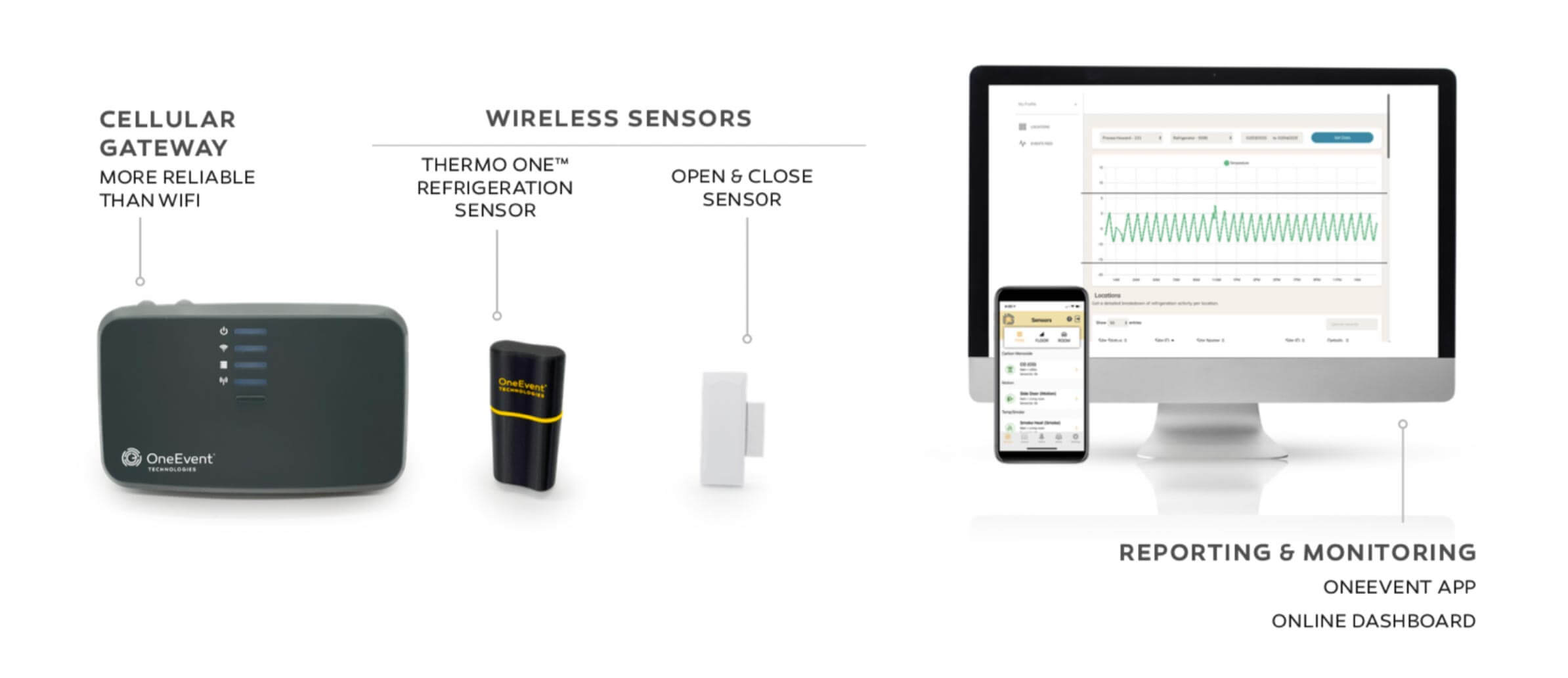Using OneEvent for proper refrigeration temperature monitoring plays a crucial role in supporting sustainability in several ways:
Energy Efficiency: Refrigeration systems consume a significant amount of energy, and inefficient operation can lead to excessive energy consumption and greenhouse gas emissions. By monitoring and maintaining the appropriate temperature settings, refrigeration equipment can operate at optimal efficiency, reducing energy waste and lowering carbon footprints.
Food Waste Reduction: Maintaining the correct temperature in refrigeration units is vital for preserving the quality and safety of perishable goods. Temperature monitoring ensures that food products are stored within the safe temperature range, minimizing the risk of spoilage and extending their shelf life. This reduces food waste and the associated environmental impact, including the energy, water, and resources used in food production and distribution.

Emission Reduction: Inadequate temperature control in refrigeration systems can lead to refrigerant leaks. Refrigerants, such as hydrofluorocarbons (HFCs), are potent greenhouse gases that contribute to global warming. By monitoring and promptly addressing any temperature fluctuations or malfunctions, businesses can prevent refrigerant leaks and reduce emissions of these harmful gases.
Maintenance Optimization: Continuous temperature monitoring allows businesses to identify and address any issues or inefficiencies in their refrigeration systems promptly. By detecting problems early, maintenance can be scheduled more effectively, preventing costly breakdowns and minimizing the need for emergency repairs. Regular maintenance improves the overall performance of refrigeration equipment, extends its lifespan, and reduces the environmental impact associated with premature replacements.
Regulatory Compliance: Many regions have regulations and standards in place regarding refrigeration temperature control and monitoring, particularly in sectors such as food storage, pharmaceuticals, and cold chains. By adhering to these regulations and maintaining accurate temperature records, businesses can avoid penalties and legal consequences while ensuring sustainable practices.
Overall, proper refrigeration temperature monitoring supports sustainability by optimizing energy efficiency, reducing food waste, minimizing emissions, optimizing maintenance, and ensuring compliance with regulations. These efforts contribute to resource conservation, reduced environmental impact, and a more sustainable future.

